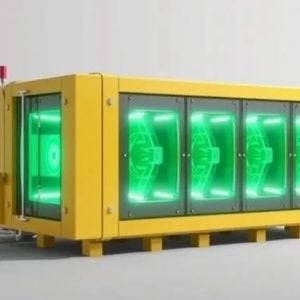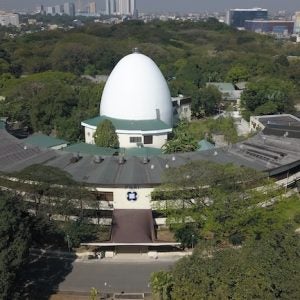 An International Atomic Energy Agency (IAEA) Integrated Review Service for Radioactive Waste and Spent Fuel Management, Decommissioning and Remediation (ARTEMIS) mission said that Greece has established a good basis to ensure and enhance the safety of radioactive waste management. The review identified areas for additional efforts, for example, improving stakeholder involvement and securing adequate human resources for the safe management of spent fuel and radioactive waste.
An International Atomic Energy Agency (IAEA) Integrated Review Service for Radioactive Waste and Spent Fuel Management, Decommissioning and Remediation (ARTEMIS) mission said that Greece has established a good basis to ensure and enhance the safety of radioactive waste management. The review identified areas for additional efforts, for example, improving stakeholder involvement and securing adequate human resources for the safe management of spent fuel and radioactive waste.
The mission was carried out at the request of the Greek Atomic Energy Commission (EEAE). Greece has no NPPs and the 5 MW Greek Research Reactor-1 (GRR-1) located at the National Centre of Scientific Research "Demokritos" (NCSR “D”) is currently licensed for extended shutdown.
Radioactive waste is the result of past operation of the research reactor and industrial, research and medical applications. Used and irradiated fuel from GRR-1 was returned to the country of origin. No plans for future management of are foreseen. Further waste will arise from the decommissioning of GRR-1 and other facilities such as cyclotrons and waste management facilities.
There is no disposal facility in Greece and radioactive waste is currently stored at an interim storage facility operated by NCSR “D” and at other licensees’ sites. Based on the classification of radioactive waste, Greece is considering engineered near-surface and borehole disposal facilities.
The review team comprised four senior experts from Denmark, France, Portugal, and Sweden as well as three IAEA staff members. An observer from the European Commission also attended. During the mission, the review team engaged in a series of exchanges with representatives of the EEAE and NCSR “D” to evaluate the Greek national policy and programme for executing the country’s obligations for safe and sustainable radioactive waste management. The ARTEMIS review team considered the findings from a previous IAEA Integrated Regulatory Review Service (IRRS) in 2012 and the follow-up review in 2017. In addition, the team visited GRR-1 and the interim storage facility at the NCSR “D” site.
“Greece has developed a national programme specifying central actions for the safe management of radioactive waste, in particular for safe predisposal management” said ARTEMIS team leader David Ulfbeck, Senior Advisor of the Danish Health Authority. “Implementation of planned actions in the National Programme will require extensive efforts, but we are confident that Greece is in a good position to undertake this task”.
The team identified recommendations and suggestions to improve the management of radioactive waste in Greece, including:
- The Government should develop a process for the inclusion of interested parties in decision making for the site selection of disposal facilities outside the NCSR “D” site prior to the issuance of the feasibility licence.
- NCSR “D” should take measures to ensure the retention of knowledge and information and provide human resources with sufficient expertise, training and skills to implement actions in the national programme.
- EEAE should consider strengthening the national inventory so that it covers all radioactive waste in Greece together with waste anticipated to arise in the future.
“We are grateful that the review team recognized our persistent efforts and progress in building our national arrangements. We recognize that a number of challenges remain, and we are fully committed to addressing the recommendations and suggestions we received from the review team,” said EEAE Chairman Christos Housiadas.
“In spite of some of the challenges highlighted during the review mission I am confident that recommended improvements related to the safe management of radioactive waste will be considered and implemented,” added Hildegarde Vandenhove, Director of the IAEA Division of Radiation, Transport and Waste Safety. The final report from the review will be provided to the Government of Greece in two months.






